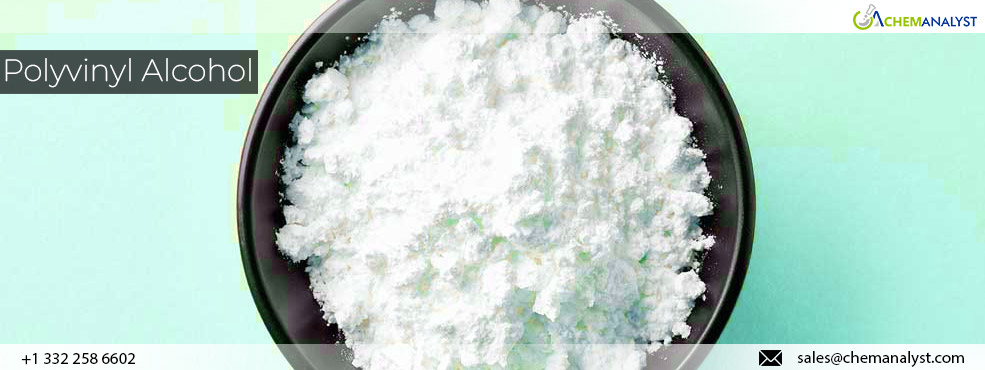Welcome To ChemAnalyst

Rotterdam (The Netherlands): Polyvinyl Alcohol prices in the Netherlands have shown stability, attributed to consistent feedstock Vinyl Acetate monomer prices. Furthermore, Polyvinyl Alcohol stocks in the market remained adequate to meet available downstream demand. Additionally, the European Central Bank's maintenance of a 4.5% interest rate since 2024 has added to market stability. In April 2024, the Manufacturing PMI for the euro area remained steady, marginally unchanged from the preliminary estimate in March. This latest reading indicates a slightly accelerated decline in manufacturing business conditions, primarily due to a sharper decrease in new orders, particularly notable for the year-to-date.
However, the decline in output moderated for the second consecutive month, reaching its slowest pace in a year. Notably, Polyvinyl Alcohol suppliers’ delivery times shortened significantly, marking the most significant reduction in eight months. Furthermore, import prices of Polyvinyl Alcohol from China increased this week, contributing to overall higher import costs. Heightened tensions between Iran and Israel are expected to raise freight charges and insurance premiums for global shipping routes, with vessels bound for western European countries and the US particularly vulnerable. The ongoing Red Sea crisis continues to disrupt global Polyvinyl Alcohol supply chains, especially impacting Asian Polyvinyl Alcohol markets, with no resolution in sight.
A newly approved law aims to eliminate links to modern slavery and human rights violations in the EU's import and export markets, primarily targeting countries like Turkmenistan or China with evidence of forced labour. This regulation, ratified and expected to be implemented in 2027 pending member state approval, grants national authorities the authority to investigate and prohibit products suspected of ties to forced labour from entering the EU market. Consequently, the European textile market remains subdued, contributing to a pessimistic Polyvinyl Alcohol market outlook.
Despite these challenges, domestic production of Polyvinyl Alcohol remains robust, effectively meeting the high demand from downstream industries, particularly the construction sector. Stable Polyvinyl Alcohol’s downstream Vinyl Acetate monomer prices have been sustained by consistent production costs, but concerns about potential price hikes loom due to increased risks associated with Houthi activity in the region. Sunil Vaswani, representing the Container Shipping Lines Association, anticipates further price increases. Ocean freight rates from Asia to Europe have exceeded contract rates as vessel capacity tightens amid the crisis. Attempts to mitigate longer transits via southern Africa encounter obstacles, limiting the provision of additional space.
Demand from the downstream textile industry for Polyvinyl Alcohol remains low, while the EuRIC has expressed concerns about the potential collapse of textile reuse and recycling in Europe. The organization highlights crises in the Netherlands and the UK, warning that without EU intervention, the situation could worsen, causing irreversible economic and environmental damage.
We use cookies to deliver the best possible experience on our website. To learn more, visit our Privacy Policy. By continuing to use this site or by closing this box, you consent to our use of cookies. More info.
